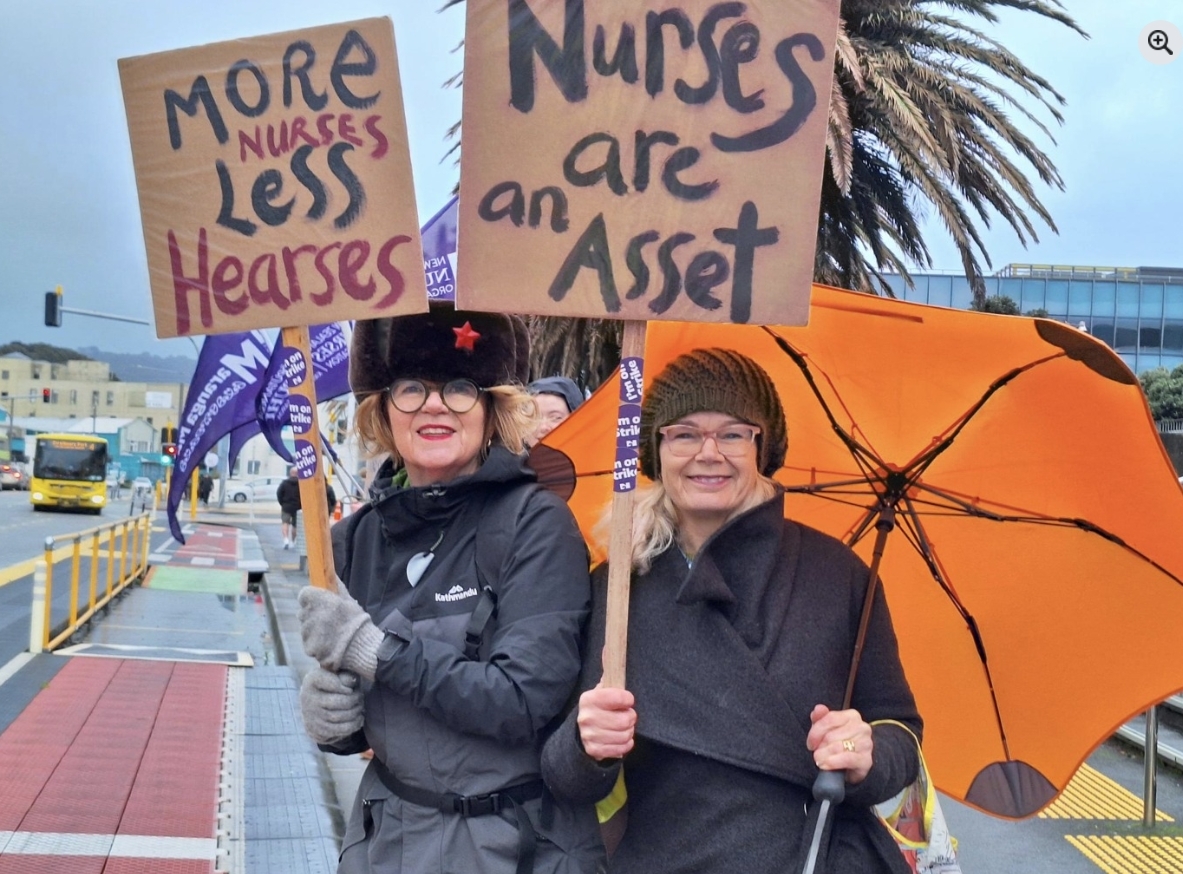Politics
Government Condemns Nationwide Strike Planned for October 23

The New Zealand government has criticized a planned mass strike set to occur on October 23, 2023, involving thousands of public sector workers. Public Service Minister Judith Collins described the strike as “unfair, unproductive, and unnecessary,” urging union leaders to reconsider their decision.
The strike is expected to affect a wide range of essential services, including education and healthcare. Collins stated that the strike is essentially a political stunt targeting the government, with real consequences for the public. “The people paying the price are the thousands of patients who have had appointments and surgeries cancelled, and the hundreds of thousands of kids who will miss another day at school,” she emphasized.
Education Minister Erica Stanford defended the government’s offers aimed at improving teacher salaries, which include plans for 66 percent of trained primary teachers to earn at least $100,000 within a year of ratification. This figure is a notable increase from the 40 percent currently receiving similar compensation. Furthermore, 76 percent of trained secondary teachers would also benefit from the new salary structure by October 29, up from 60 percent.
Despite these offers, the Post-Primary Teachers’ Association (PPTA) rejected the proposal. Stanford expressed frustration, stating, “Teachers and principals want to be at school; they can see the positive change in the classroom with our reforms.” She criticized unions for not engaging in good faith negotiations and for spreading what she termed misinformation.
Collins highlighted the government’s substantial financial commitment to education, amounting to $53 million spent on teachers’ registration and levies, as well as a historic $750 million investment into learning support. Despite these efforts, she noted that the unions have not prioritized any claims to facilitate meaningful dialogue.
Health Minister Simeon Brown also weighed in, pointing out that senior doctors have walked away from an offer that would improve their pay and working conditions. The average total remuneration for senior doctors at Health New Zealand is approximately $343,500, which includes allowances and overtime. The latest proposal included a salary increase of at least 5 percent over two years, alongside a $40 million fund aimed at workforce retention.
In contrast, the New Zealand Nurses Organisation (NZNO) announced that over 100,000 essential workers would participate in the upcoming strikes. The NZNO argues that these actions are necessary to urge the government to adequately fund vital public services. Union spokespersons contend that the strike reflects widespread dissatisfaction with current working conditions and the impact of underfunding on service delivery.
Liam Rutherford, a leader in the NZEI Te Riu Roa, underscored the significance of the strike. “To have teachers, principals, support staff, and more all striking tells you how widespread the feeling is that change is needed in education,” he said.
The Association of Salaried Medical Specialists (ASMS) also expressed solidarity. Dr. Julian Vyas, a respiratory paediatric physician, stated the government must recognize the urgent need for funding to sustain critical public services.
On the other side, nurses like Debbie Handisides emphasized the dire consequences of staffing shortages, stating, “When there aren’t enough nurses, care is delayed and lives are put in danger.” This sentiment was echoed by Virgil Iraia, president of the Public Service Association, who highlighted the struggle of overworked health workers.
Firefighters, too, have joined the call for better staffing and resources. Mike Swanson, secretary for the New Zealand Professional Firefighters Union, stressed the importance of safe working conditions and adequate support for those facing occupational hazards.
As the situation unfolds, the government remains firm in its position, urging unions to prioritize constructive negotiations over disruptive actions. Collins stated, “Dragging these negotiations out with industrial action is cruel to those people who were due to have surgery or vital consultations.”
The upcoming strike on October 23 is positioned as a pivotal moment for public sector workers in New Zealand, signaling widespread discontent and a demand for better funding and working conditions across essential services.
-

 World4 months ago
World4 months agoTest Your Knowledge: Take the Herald’s Afternoon Quiz Today
-

 Sports4 months ago
Sports4 months agoPM Faces Backlash from Fans During Netball Trophy Ceremony
-

 Lifestyle4 months ago
Lifestyle4 months agoDunedin Designers Win Top Award at Hokonui Fashion Event
-

 Entertainment4 months ago
Entertainment4 months agoExperience the Excitement of ‘Chief of War’ in Oʻahu
-

 Sports4 months ago
Sports4 months agoLiam Lawson Launches New Era for Racing Bulls with Strong Start
-

 World5 months ago
World5 months agoCoalition Forms to Preserve Māori Wards in Hawke’s Bay
-

 Health4 months ago
Health4 months agoWalking Faster Offers Major Health Benefits for Older Adults
-

 Lifestyle4 months ago
Lifestyle4 months agoDisney Fan Reveals Dress Code Tips for Park Visitors
-

 Politics4 months ago
Politics4 months agoScots Rally with Humor and Music to Protest Trump’s Visit
-

 Top Stories5 months ago
Top Stories5 months agoUK and India Finalize Trade Deal to Boost Economic Ties
-

 Health2 months ago
Health2 months agoRadio Host Jay-Jay Feeney’s Partner Secures Visa to Stay in NZ
-

 World5 months ago
World5 months agoHuntly Begins Water Pipe Flushing to Resolve Brown Water Issue









